India Needs New Trade Roadmap: Economic Survey
India's Economic Survey calls for a new trade strategy to combat protectionism, cut costs, and boost export competitiveness. The report highlights the need for a proactive approach to thrive in a changing global market.
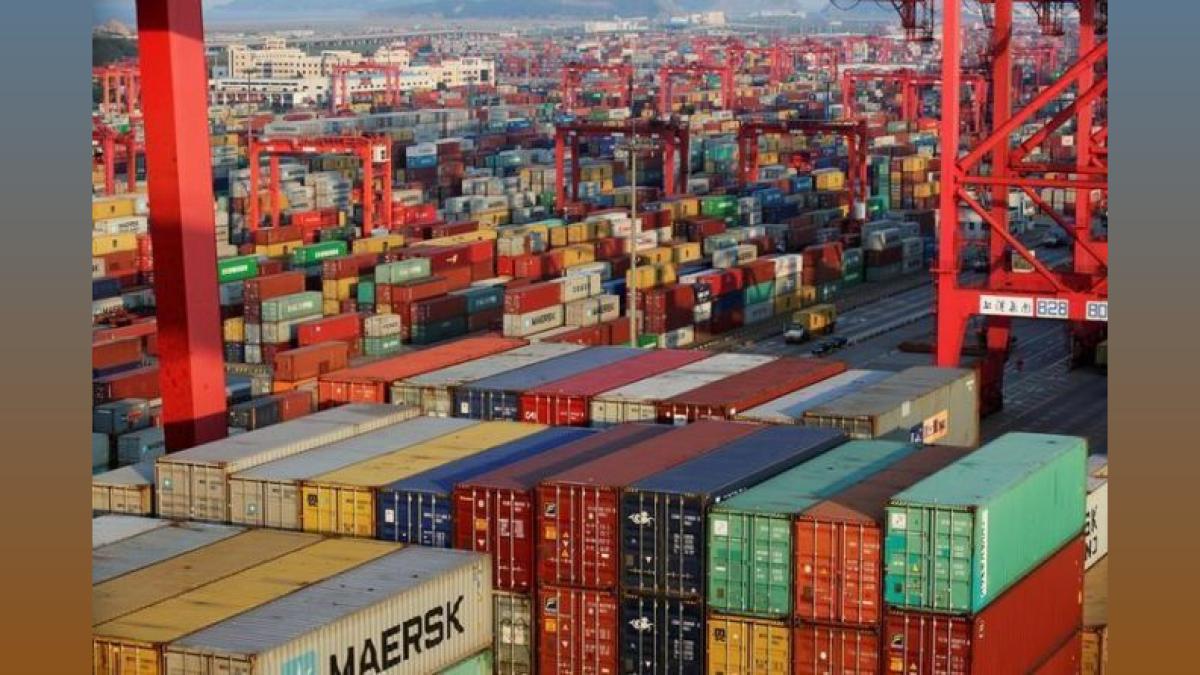
Photograph: Aly Song/Reuters
New Delhi, Jan 31 (PTI) The Economic Survey on Friday called for a new strategic trade roadmap for India, along with measures to cut trade costs and enhance export competitiveness amid growing protectionism globally.
It said that much remains to be done to enhance trade competitiveness.
"Global trade dynamics have changed significantly in recent years, shifting from globalisation to rising trade protectionism, accompanied by increased uncertainty. This calls for a new strategic trade roadmap for India," the survey said.
It added that to remain competitive and enhance its participation in global supply chains, India must continue reducing trade costs and improving facilitation to boost export competitiveness.
"The good news is that doing so is entirely in our hands. On its part, the industry must continue to invest in quality," it said adding the country's external sector continued to display resilience amidst global headwinds of economic and trade policy uncertainties.
It emphasised the need to assess the global situation and develop a forward-looking strategic trade roadmap to deal with the evolving global trade dynamics, marked by gradual shifts towards greater protectionism.
"To strengthen its competitiveness and further integrate into global supply chains, the country can focus on reducing trade-related costs and enhancing export facilitation to create a more vibrant export sector. This proactive approach will help India continue to thrive in an ever-changing global market," the survey said.
As per estimates, India's share of global trade was over 2 per cent in 2023.
During the April-December period of this fiscal year, exports recorded a growth of 1.6 per cent to USD 321.71 billion and imports by 5.15 per cent to USD 532.48 billion.
Trade deficit -- the difference between imports and exports -- during April-December widened to USD 210.77 billion from USD 189.74 billion during the same period of the previous fiscal year.
It noted that disruptions in global trade due to the Red Sea crisis, the Russia-Ukraine war and the recent drought in the Panama Canal, allied with increased protectionist tendencies shown by many countries, have created uncertainties.
The number of non-tariff measures in sectors such as agriculture, manufacturing, and natural resources, that restrict international trade have also increased over the last few years.
The Economic Survey 2024-25 was tabled in the Parliament by Finance Minister Nirmala Sitharaman.
On the steps being taken to increase exports, it said, India is in the process of negotiating a number of free trade agreements (FTAs) with countries and trading blocks.
India is actively working towards negotiating trade deals with top importers such as the EU and the UK.
Services exports from India too have shown a multi-sectoral presence in global exports, with notable contributions across several sectors.
The country's share in global services exports has more than doubled, reaching around 4.3 per cent in 2023 from 1.9 per cent in 2005.
In telecommunications, computer, and IT, India accounts for 10.2 per cent of the global exports market (ranking second largest exporter in the world), reflecting its strong position in IT outsourcing, software development, and digital services.
As the country becomes a hub for Global Capability Centres and continues to innovate, focusing on skill development and strategic policy interventions will be key to sustaining this momentum, it said.
India's total exports reached USD 602.6 billion in the first nine months of 2024-25, highlighting strong trade resilience despite increasing global protectionism.
Commenting on the Survey, Lokesh Shah, Partner, IndusLaw, said it has underscored the importance of enabling businesses to concentrate on their core missions.
Federation of Indian Export Organisations (FIEO) President Ashwani Kumar said that simplification of procedures, reduction in transaction costs and adoption of innovation and technology will help boost export competitiveness.
It said that much remains to be done to enhance trade competitiveness.
"Global trade dynamics have changed significantly in recent years, shifting from globalisation to rising trade protectionism, accompanied by increased uncertainty. This calls for a new strategic trade roadmap for India," the survey said.
It added that to remain competitive and enhance its participation in global supply chains, India must continue reducing trade costs and improving facilitation to boost export competitiveness.
"The good news is that doing so is entirely in our hands. On its part, the industry must continue to invest in quality," it said adding the country's external sector continued to display resilience amidst global headwinds of economic and trade policy uncertainties.
It emphasised the need to assess the global situation and develop a forward-looking strategic trade roadmap to deal with the evolving global trade dynamics, marked by gradual shifts towards greater protectionism.
"To strengthen its competitiveness and further integrate into global supply chains, the country can focus on reducing trade-related costs and enhancing export facilitation to create a more vibrant export sector. This proactive approach will help India continue to thrive in an ever-changing global market," the survey said.
As per estimates, India's share of global trade was over 2 per cent in 2023.
During the April-December period of this fiscal year, exports recorded a growth of 1.6 per cent to USD 321.71 billion and imports by 5.15 per cent to USD 532.48 billion.
Trade deficit -- the difference between imports and exports -- during April-December widened to USD 210.77 billion from USD 189.74 billion during the same period of the previous fiscal year.
It noted that disruptions in global trade due to the Red Sea crisis, the Russia-Ukraine war and the recent drought in the Panama Canal, allied with increased protectionist tendencies shown by many countries, have created uncertainties.
The number of non-tariff measures in sectors such as agriculture, manufacturing, and natural resources, that restrict international trade have also increased over the last few years.
The Economic Survey 2024-25 was tabled in the Parliament by Finance Minister Nirmala Sitharaman.
On the steps being taken to increase exports, it said, India is in the process of negotiating a number of free trade agreements (FTAs) with countries and trading blocks.
India is actively working towards negotiating trade deals with top importers such as the EU and the UK.
Services exports from India too have shown a multi-sectoral presence in global exports, with notable contributions across several sectors.
The country's share in global services exports has more than doubled, reaching around 4.3 per cent in 2023 from 1.9 per cent in 2005.
In telecommunications, computer, and IT, India accounts for 10.2 per cent of the global exports market (ranking second largest exporter in the world), reflecting its strong position in IT outsourcing, software development, and digital services.
As the country becomes a hub for Global Capability Centres and continues to innovate, focusing on skill development and strategic policy interventions will be key to sustaining this momentum, it said.
India's total exports reached USD 602.6 billion in the first nine months of 2024-25, highlighting strong trade resilience despite increasing global protectionism.
Commenting on the Survey, Lokesh Shah, Partner, IndusLaw, said it has underscored the importance of enabling businesses to concentrate on their core missions.
Federation of Indian Export Organisations (FIEO) President Ashwani Kumar said that simplification of procedures, reduction in transaction costs and adoption of innovation and technology will help boost export competitiveness.
You May Like To Read
TODAY'S MOST TRADED COMPANIES
- Company Name
- Price
- Volume
- Vodafone Idea L
- 8.10 (+ 18.94)
- 352105814
- GTL Infrastructure
- 1.50 (+ 7.14)
- 20982285
- G G Engineering
- 0.90 (+ 11.11)
- 20091512
- AvanceTechnologies
- 0.54 ( -8.47)
- 18780688
- YES Bank Ltd.
- 17.33 (+ 2.61)
- 14468025
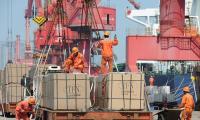
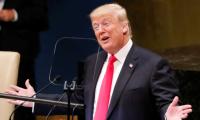

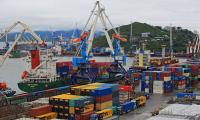
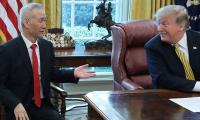

 © 2025 Rediff.com India Limited. All rights reserved.
© 2025 Rediff.com India Limited. All rights reserved.